
Jewish Studies Quarterly
Scope & Guideline
Illuminating the Rich Tapestry of Jewish Studies
Introduction
Aims and Scopes
- Historical Analysis of Jewish Texts:
The journal publishes research that critically examines historical Jewish texts, including biblical, medieval, and modern writings, contextualizing them within their socio-political and cultural frameworks. - Philosophical and Theological Inquiry:
A significant portion of the journal's content is dedicated to philosophical discussions surrounding Jewish thought, exploring themes such as ethics, metaphysics, and the interplay between faith and reason. - Cultural and Social Studies:
Research exploring the cultural practices, social structures, and communal life of Jewish communities throughout history is a core focus, emphasizing the lived experiences of Jews in various contexts. - Interdisciplinary Approaches:
Jewish Studies Quarterly encourages interdisciplinary research that combines insights from fields such as anthropology, sociology, literature, and digital humanities to enrich the understanding of Jewish studies. - Legal and Ritual Practices:
The journal includes studies on Jewish law (Halakhah) and ritual practices, examining their evolution and significance within Jewish communities and their interactions with other legal traditions.
Trending and Emerging
- Digital Humanities in Jewish Studies:
The integration of digital humanities methodologies is on the rise, with scholars utilizing computational tools to analyze texts and data, thereby opening new avenues for research and engagement with Jewish literature. - Interdisciplinary Studies of Jewish Thought:
There is an increasing trend towards interdisciplinary studies that combine Jewish thought with philosophy, sociology, and literature, allowing for a richer understanding of Jewish intellectual traditions and their relevance today. - Exploration of Messianic and Eschatological Themes:
Recent publications are increasingly focusing on messianic ideas and eschatological themes within Jewish texts, reflecting contemporary concerns about identity, hope, and redemption in modern contexts. - Engagement with Non-Jewish Philosophical Traditions:
Scholars are increasingly examining the dialogues between Jewish thought and non-Jewish philosophical traditions, such as existentialism and postmodernism, highlighting the interplay of ideas across cultures. - Attention to Marginalized Voices in Jewish History:
There is a growing focus on the histories and contributions of marginalized groups within Jewish communities, including women, LGBTQ+ individuals, and non-Ashkenazi Jews, reflecting a broader commitment to inclusivity and diversity in scholarship.
Declining or Waning
- Traditional Historical Narratives:
There seems to be a waning interest in traditional, linear historical narratives of Jewish history, as contemporary scholarship increasingly favors complex, multifaceted approaches that challenge monolithic interpretations. - Focus on Isolated Geographical Studies:
Research that examines Jewish communities in isolation, without consideration of broader transnational or interconnected frameworks, is becoming less prevalent as scholars recognize the importance of global perspectives. - Static Interpretations of Texts:
There is a noticeable decline in papers that offer static interpretations of classical Jewish texts, with a shift towards dynamic readings that engage with contemporary issues and diverse scholarly dialogues. - Studies of Jewish Identity in Homogeneous Contexts:
Research focused solely on homogeneous Jewish identities, without consideration of intersectionality or the complexities of Jewish life in diverse societies, is less common in recent publications. - Historical Focus on Ashkenazi Jewry:
While Ashkenazi studies have been central to Jewish scholarship, there is a decreasing emphasis on exclusively Ashkenazi narratives, as scholars increasingly seek to include Sephardic, Mizrahi, and other Jewish experiences.
Similar Journals
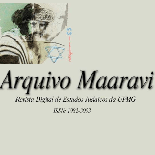
Arquivo Maaravi-Revista Digital de Estudos Judaicos da UFMG
Fostering Dialogue in Jewish ScholarshipArquivo Maaravi-Revista Digital de Estudos Judaicos da UFMG is a distinguished open-access journal dedicated to the field of Jewish Studies, published by the Universidade Federal de Minas Gerais (UFMG). With an ISSN of 1982-3053, the journal has been serving the academic community since 2007, facilitating the dissemination of research and scholarship in Jewish cultural, historical, and religious studies. Situated in the vibrant academic landscape of Brazil, the journal aims to foster dialogue among researchers, professionals, and students, providing a platform for innovative and critical perspectives. Although the H-Index and specific Scopus ranks are not available, the journal's commitment to academic rigor and open access ensures that its content reaches a broad audience, empowering researchers and enriching the field of Jewish studies worldwide. The journal is based at FAC Ciências Econômicas, Av. Antonio Carlos, 6627, Belo Horizonte MG 31270-901, Brazil, making it an integral part of the UFMG's academic ecosystem.

Nordisk Judaistik-Scandinavian Jewish Studies
Fostering Interdisciplinary Insights into Scandinavian Jewish LifeNordisk Judaistik-Scandinavian Jewish Studies is a distinguished academic journal dedicated to the exploration of Jewish culture, history, and religious practices in the Scandinavian context. Published by the DONNER INSTITUTE FOR RESEARCH ON RELIGIOUS AND CULTURAL HISTORY in Finland, this journal has been an open access platform since 2016, allowing easy dissemination of knowledge and fostering scholarly communication among researchers, educators, and students. With a variety of subjects encompassing Anthropology, Cultural Studies, History, and Religious Studies, the journal has achieved commendable recognition, with its latest rankings placing it in Q2 in several categories according to the 2023 Scopus rankings. The journal's significant contribution to the field is evident through its impact, evidenced by its strategic position within its respective quartiles. By bridging interdisciplinary methodologies and Jewish studies within a Scandinavian framework, Nordisk Judaistik serves as an essential resource for those engaged in the complexities and nuances of Jewish heritage and identity in the region.
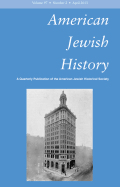
AMERICAN JEWISH HISTORY
Uncovering Narratives, Shaping IdentitiesAMERICAN JEWISH HISTORY is a premier academic journal published by Johns Hopkins University Press, dedicated to the exploration and analysis of the Jewish experience in the American context. With ISSN 0164-0178 and E-ISSN 1086-3141, this journal serves as a vital resource for scholars and students in the fields of cultural studies, history, and religious studies, as evidenced by its placement in the Q3 quartile across these disciplines in 2023. Reaching a broad audience interested in the historical, social, and cultural dimensions of the American Jewish narrative, the journal has converged in various years, ensuring a robust collection of multidisciplinary research and discussions. Although it operates under a traditional subscription model, the journal remains an essential platform for critical analysis, fostering deeper understanding of Jewish identity and history. With Scopus rankings placing it at the 60th percentile in History and 62nd percentile in Religious Studies, AMERICAN JEWISH HISTORY stands as a respected publication that significantly contributes to the discourse surrounding Jewish history and culture in the United States.
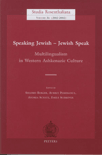
STUDIA ROSENTHALIANA
Cultivating Understanding through Critical AnalysisSTUDIA ROSENTHALIANA is a distinguished journal published by Amsterdam University Press, specializing in the interdisciplinary study of Jewish culture and history, particularly as it relates to the field of Rosenthaliana, encompassing literature, art, and historical scholarship. With a robust academic legacy dating back to its inception in 1970, the journal has evolved through various publication phases, maintaining a commitment to fostering scholarly discourse and disseminating significant research. Although it does not currently participate in an open access model, STUDIA ROSENTHALIANA continues to contribute invaluable insights to the fields of Jewish studies, cultural analysis, and historical research. Researchers, professionals, and students can benefit from its comprehensive essays, critical reviews, and analytical studies that enrich our understanding of Jewish heritage and modern implications. The journal's influence and relevance in its field make it an essential resource for anyone invested in contemporary debates and analyses concerning Jewish culture and identity.

Tradition-A Journal of Orthodox Jewish Thought
Illuminating Tradition Through Scholarly DiscourseTradition: A Journal of Orthodox Jewish Thought is a prestigious academic journal published by the Rabbinical Council of America, dedicated to the exploration and analysis of Orthodox Jewish thought and its implications on contemporary issues. With a legacy dating back to 1973, this journal serves as a crucial platform for scholars, theologians, and students interested in the rich tapestry of Jewish philosophy, law, and ethics. Although it does not offer open access, its thoughtful, peer-reviewed articles are essential for advancing knowledge in Jewish academia and fostering dialogue within the broader cultural context. As an authoritative voice in the field, Tradition invites submissions that challenge, inform, and inspire further inquiry into the complexities of Jewish tradition, ensuring that it remains at the forefront of scholarly discussion.
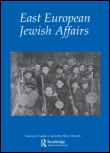
East European Jewish Affairs
Delving into the Cultural Dynamics of East European JewryEast European Jewish Affairs is a prominent scholarly journal published by Routledge Journals, Taylor & Francis Ltd, dedicated to exploring the intricate historical, cultural, and political dynamics of Jewish communities in Eastern Europe. With ISSN 1350-1674 and E-ISSN 1743-971X, this journal has been a critical platform for academic discourse since its inception in 1992, resuming publication after a hiatus in 2005. Although it is not an open-access journal, it provides vital insights into Jewish studies, engaging researchers, professionals, and students alike with in-depth analyses and discussions. The journal currently holds a Q4 ranking in multiple categories, including Cultural Studies, History, and Political Science and International Relations, reflecting its niche yet significant contribution to these fields. The 2023 Scopus rankings position it within the 34th percentile in History and the 10th percentile in Political Science, evidencing its specialized focus and the evolving nature of Jewish studies. For those investigating the unique social and cultural trajectories of East European Jewish communities, East European Jewish Affairs serves as an essential resource.
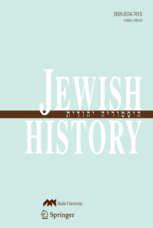
Jewish History
Connecting Communities Through Historical InsightsJewish History is a significant academic journal published by Springer, focusing on the multifaceted historical narratives of Jewish communities worldwide. With roots tracing back to 1986, this esteemed journal offers an intellectual platform where researchers and scholars can engage critically with the vast and rich tapestry of Jewish heritage, culture, and experiences. Although it operates under a traditional subscription model, the journal has gained a notable standing in recent years, achieving a Q4 ranking in Cultural Studies and a Q3 ranking in History for 2023, reflecting its robust scholarly contributions. The journal is indexed in Scopus, with a rank of #808 in Arts and Humanities History and #754 in Social Sciences Cultural Studies, placing it within the competitive landscape of academic publishing. Its commitment to advancing the field of Jewish studies makes it an essential resource for researchers, professionals, and students alike, who seek to deepen their understanding of Jewish history from historical, cultural, and social perspectives.
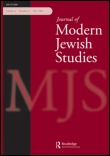
Journal of Modern Jewish Studies
Advancing Scholarly Dialogue in Jewish StudiesThe Journal of Modern Jewish Studies, published by Routledge Journals, Taylor & Francis Ltd, serves as a premier platform for scholarly discourse in the realm of Jewish studies, particularly addressing the contemporary intersections of culture, history, and political science. Established in 2002, this journal has become increasingly vital, as demonstrated by its categorization in the Q3 and Q4 quartiles across various fields, including Cultural Studies and History, showcasing its pivotal role within the academic community. Despite not being an open-access journal, it continues to maintain a robust ranking, being placed in the 74th percentile for History and 62nd percentile for Cultural Studies in the Scopus Ranks. This illustrates the journal's commitment to high-quality research and its significant contribution to understanding the complexities of modern Jewish life and traditions. Based in the United Kingdom, the journal's outreach and content are designed to engage researchers, professionals, and students who are passionate about exploring the diverse facets of Jewish identity and its implications in contemporary society.

Kwartalnik Historii Zydow-Jewish History Quarterly
Fostering Understanding of Jewish Cultural LegaciesKwartalnik Historii Żydów - Jewish History Quarterly is a dedicated academic journal published by the esteemed Jewish Historical Institute in Warsaw, Poland. With an ISSN of 1899-3044, this quarterly publication serves as a vital platform for scholarly discourse on Jewish history, culture, and heritage. The journal aims to reflect the diversity and complexity of Jewish experiences across historical contexts, making it an essential resource for researchers, professionals, and students in the fields of History, Religious Studies, and Cultural Studies. Despite its recent coverage discontinuation in Scopus from 2012 to 2015, the journal's rankings within its respective categories indicate a modestly engaged readership and potential for contribution, particularly seen in its ranks of 339/388 in Religious Studies and 859/975 in History. Although the journal operates on a non-open access basis, its curated articles enrich the understanding of Jewish narratives and interactions within broader socio-cultural frameworks, underlining its importance in promoting historical knowledge and cultural appreciation.
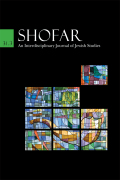
Shofar-An Interdisciplinary Journal of Jewish Studies
Bridging Disciplines to Enrich Jewish UnderstandingShofar: An Interdisciplinary Journal of Jewish Studies, published by Purdue University Press, is a prominent peer-reviewed journal that engages with the diverse and rich tapestry of Jewish studies through interdisciplinary approaches. With a focus on cultural studies, history, and religious studies, the journal has established itself within the academic community, achieving significant recognition evidenced by its Q3 ranking in these disciplines as of 2023. Researchers and scholars in the field will find valuable insights and innovative discussions that push the boundaries of traditional scholarship. Though currently not open access, Shofar offers an enriching forum for scholarly discourse that fosters a deeper understanding of Jewish identity, history, and culture, making it an essential resource for professionals and students alike. The journal's ISSN is 0882-8539, while its E-ISSN is 1534-5165. It is operational from 2014 to 2024 and is located in the United States.